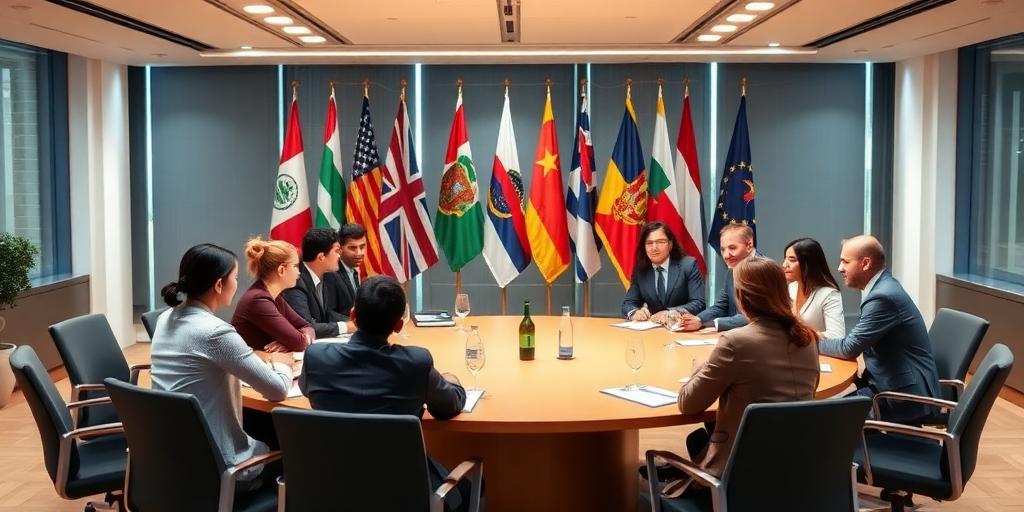Diplomatic efforts are essential for fostering peace and stability in a world often marked by conflict and discord. These efforts encompass a range of strategies, including negotiation, mediation, and dialogue, all aimed at preventing or resolving disputes peacefully. Diplomacy serves as a crucial tool for nations to communicate, understand each other's perspectives, and find common ground.
Negotiation: A Cornerstone of Diplomacy
Negotiation is at the heart of diplomatic efforts. It involves direct communication between parties with differing interests or grievances. Effective negotiation requires a willingness to compromise, active listening, and a focus on identifying mutually beneficial outcomes. Successful negotiations can lead to treaties, agreements, and other forms of cooperation that promote stability.
Mediation: Facilitating Dialogue
When direct negotiations stall, mediation can play a vital role. Mediators are neutral third parties who facilitate communication between conflicting parties. They help to clarify issues, explore potential solutions, and build trust. Mediation can be particularly useful in complex conflicts where emotions run high and communication has broken down.
Dialogue: Building Bridges
Dialogue is another important diplomatic tool. It involves open and respectful communication between individuals, groups, or nations. Dialogue can help to break down stereotypes, promote understanding, and build relationships. It is often used as a preventative measure to address underlying tensions before they escalate into conflict.
Challenges and Opportunities
Diplomatic efforts face numerous challenges, including mistrust, power imbalances, and conflicting interests. However, there are also opportunities to strengthen diplomacy and make it more effective. These include investing in diplomatic training, promoting multilateralism, and leveraging technology to enhance communication and collaboration.
The Role of International Organizations
International organizations, such as the United Nations, play a crucial role in promoting peace and stability through diplomatic efforts. They provide a platform for nations to engage in dialogue, negotiate agreements, and address common challenges. International organizations also deploy peacekeeping forces, provide humanitarian assistance, and promote economic development, all of which contribute to stability.
Conclusion
Diplomatic efforts are indispensable for promoting peace and stability in a complex and interconnected world. By employing negotiation, mediation, and dialogue, nations can prevent conflicts, resolve disputes peacefully, and build a more secure and prosperous future for all.









